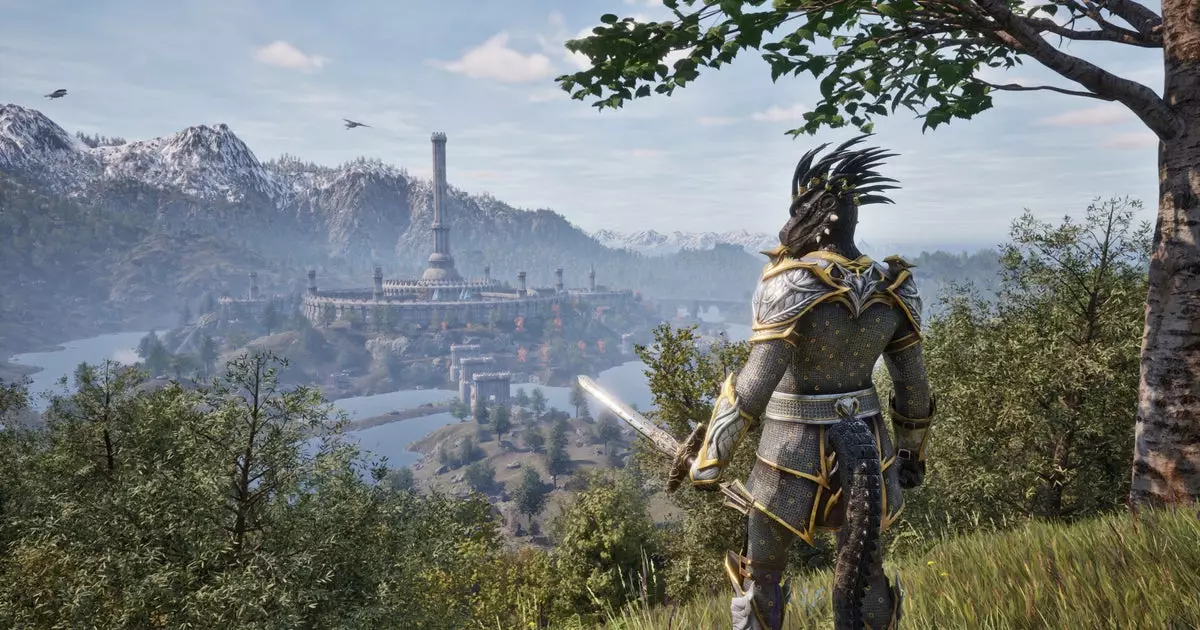It’s a wild time to be a fan of The Elder Scrolls IV: Oblivion, particularly with the recent release of the remastered version. Despite Bethesda’s lack of official mod support, the community has risen to the occasion in spectacular fashion. Within a mere 24 hours of the remaster’s launch, the modding community was ablaze with activity, generating over 90 new modifications—an impressive feat that screams to the dedication and passion within this gaming subculture. Modding is not just a hobby; it is a canvas for creativity where players can reshape narratives, visualize favorite characters, and breathe fresh life into existing games.
Rediscovering Old Gems
What is particularly fascinating about this remaster is its compatibility with older mods. The community has unearthed relics from the original game, showcasing how timeless some of these modifications truly are. Players have dusted off old favorites, such as a mod originally launched in 2008 that introduces end-game armor in a prison setting. Remarkably, users found that this mod functioned flawlessly with minor adjustments, breathing new life into an experience that some might have considered obsolete. It illustrates the nimbleness of the modding community and their ability to blend historical content with modern advancements seamlessly.
The Art of Modding
Modding reveals the intricate relationship between players and developers, serving as a bridge that invites players to experiment within a beloved universe. Although the remaster employs Unreal’s powerful engine that brings new graphics and functionality, modders are busy working to push the boundaries further. Early findings suggest that while more complex modifications may run into barriers, simpler alterations are readily achievable and have already taken flight. From visual enhancements that brighten the game world to convenience mods that streamline gameplay, the output from modders illustrates both nostalgia and innovation.
Balancing Tradition with Progress
The wisdom of the community is apparent in how they navigate the new gameplay mechanics. Oblivion’s character movement, user interface, and leveling systems have undergone significant revamps in the remaster. This means older mods that once thrived on the classic mechanics may no longer be as applicable. A significant point of contention is the design of the leveling system, which has fundamentally changed to remove polarizing aspects of difficulty scaling. Such shifts inspire curiosity about the kinds of mods that may emerge: will we see a renaissance of difficulty-enhancing mods as players seek nostalgia amid modern sensibilities?
Harsh Realities of Freedom
Yet, amidst the excitement, certain choices by modders do provoke debate. For instance, mods that eliminate carry weight restrictions reveal a tension between gameplay tradition and modern convenience. While on the surface it may appear liberating to ditch the relentless inventory management so emblematic of the Elder Scrolls experience, it arguably detracts from the immersive survival aspects that define it. The struggle between carrying forward the spirit of Oblivion and modernizing its mechanics presents a fascinating landscape: does freedom come at the cost of immersive constraints?
Future of Oblivion Remastered
The future of Oblivion Remastered and its modding community is undoubtedly promising. As modders sift through the archives of old mods and creatively adapt them to the new framework, the community stands poised to create an enriched gaming experience that extends well beyond the remaster’s baseline offerings. It’s a compelling case study on how the passion of gamers can result in groundbreaking creations—will future mods introduce beloved anime characters? Will they remix game mechanics entirely? The potential is exhilarating, and the imagination of the community knows no bounds.
In a digital landscape where games can often feel finite, the world of modding breathes an infinite array of possibilities into the realm of The Elder Scrolls IV: Oblivion Remastered.

